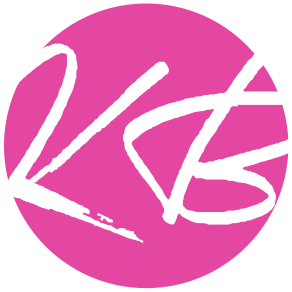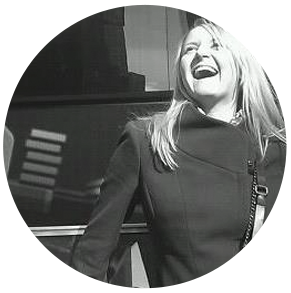In December of 2022, I spoke at the AutoTrader Design Talks Event in Manchester about Design Culture. There were 4 other speakers that night and at the end of the event, we had a brief Q&A session. One question that was posed to the panel was "what advice do you have for junior designers or those just starting out on their careers".
While we each gave our responses on the night, I had my reoccurring ritual where I woke up at 3 am the following day with this question racing through my head, so much so that I had to scribble my thoughts down in the barely there light just so I could get back to sleep! (I'll write an article about this nocturnal behaviour pattern at some point).
This article is the realisation of my intention to write a more robust response to that question. It’s by no means an exhaustive list, but possibly some of the lesser tidbits of the advice offered to those early in their design careers.
It's OK to not have all the answers
I believe that it’s OK not to have all the answers because as a designer, you're not supposed to - you're supposed to have the tools by which to facilitate the exploration and discovery of ideas and solutions. The most powerful words in your career might just be "I don't know but I do know how”…
You’ll likely soon discover that some stakeholders see the role of the designer just by the output they produce, however, to get to the point of having UIs, design files etc, you’ll know (or soon learn) that you have to wear multiple hats during the design process. From coach and facilitator bringing people together in discussion and collaboration to intrepid explorer collecting data and insight to inform your decisions before consolidating all these learnings into a creative solution with logical structure and frameworks underpinning it.
I’m aware that this feels like a lot of hats, skills and processes which might seem to fly in the face of Lean and Agile working practices and this is perhaps where the real key to developing as a designer is; in knowing the process enough (the ‘rules’, if you like) to know when to flex it to accommodate business demands of tight timescales and the like. Also helpful to know this in order to educate and inform others about the importance of certain parts of the process - where things can be squeezed and adapted but very rarely dropped completely (usability testing, for example). We absolutely need to deliver for our customers or users and, therefore, the business and the design process shouldn’t get in the way of that - it’s not a box-ticking exercise after all. So, while one approach worked for you before, don’t rely on it working in all scenarios - learn the toolkit, practice and explore new techniques and understand your stakeholders just as much as you do the customers or users you’re designing solutions for and find those answers together, collaboratively.
You will always be learning
And this is why I don’t believe it’s possible for us to have all the answers - especially if you are designing digital consumer products (be they e-commerce experiences, websites, SaaS, or apps) your landscape will be forever changing. From economic and environmental factors which might drive changes to consumer behaviours to the technological advancements of devices, from operating system changes to new methods of interaction; just when you think you've learnt one thing, there's something new and different coming in to take its place. We have to be comfortable that changing, learning and adapting is unavoidable and constant.
One of my favourite philosophical beliefs is Zen Master, Shunryo Suzuki’s - "In the beginners’ mind there are many opportunities and in the experts, there are few" as cited in my previous article exploring "when did we stop drawing?" and how there are lessons to be learned from the creativity of children - the more we view ourselves as subject matter experts, the harder it can be to step into this beginner mindset and in which case be open to exploring as many opportunities as possible.
So, if this is true, how can you nurture this beginner-ness so you can retain this throughout your career? In my opinion, it's (like most things) a practice. One thing which certainly helps is not skimping on your problem exploration process; keep asking questions (using methodologies like FOG (Fact, Opinion or Guess) or 5 Whys and others) to get to the heart of the issue - the problem as it first appears, might not be the problem after all. I think it’s also a healthy and important practice that we use these tools and techniques on our own judgements and beliefs about ourselves, so we can self-reflect in order to learn and adapt throughout our career, too.
Enjoy the journey
I love Alan Watts's theory that life is not a journey - it’s a dance - as much as we're conditioned to view it as a linear, almost ladder-like journey where we have to keep moving onwards and upwards, where there’s some end goal or reward and a point in time where “we’ve made it”, in reality, we potentially miss so much viewing life and careers through this lens.
What if we do look at it as a dance or as a form of music where the goal isn’t to get to the end of the song, it’s to enjoy the moment you’re in, to feel something? Can you shake off the conditioning and apply the same to where you’re at in your career right now - is there enjoyment day to day or are you looking ahead and chasing the next thing? Of course, by all means, have ambitions and a career goal but be mindful that this is not for the sake of missing what’s happening now - because what happens if you achieve that goal and you’re not satisfied that it’s ‘it’ and you’re on to chasing the next thing and the next? What happens if we’re so wedded to that future vision of ourselves that we miss out on opportunities that unfold in front of us, seeming to deviate us from the path we think we ought to be following, but that could be better for us?
If we’re able to balance the tension between being here now and going with the flow vs having goals and aspirations, we’re more likely to be able to weather the storm of things beyond our control disrupting our plans, too. But, again, it’s all practice - and to go back to the ‘life as a dance’ analogy, the good dancers, when they trip are the ones who smile and carry on and the great ones make it look like it was part of the choreography all along.

